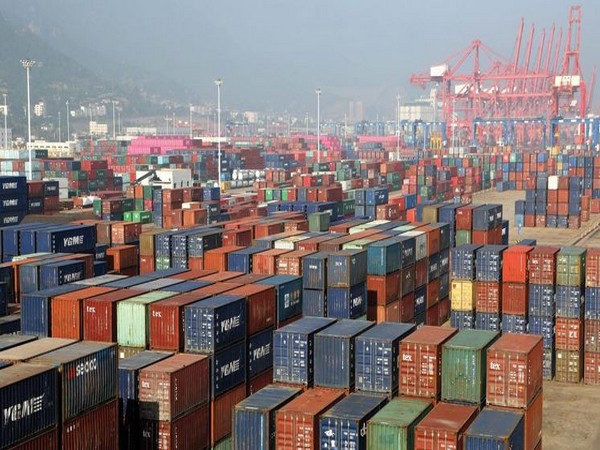U.S. pushes back against Russian demands linked to Ukraine grain deal

- Country:
- United States
The United States pushed back on Russian demands that Western sanctions be eased before it allows Ukrainian Black Sea grain exports beyond mid-May, saying there were no restrictions on Russian agricultural products or fertilizer.
Moscow's demands include allowing the Russian Agricultural Bank to return to the SWIFT banking system and unblocking the accounts and financial activities of Russian fertilizer companies. The deal allowing the safe wartime export of Ukrainian grain from its Black Sea ports, initially brokered last July by Turkey and the United Nations, was renewed on Saturday for at least 60 days, half the intended period.
The United States strongly supports U.N. efforts to get Ukrainian and Russian agricultural products to world markets, said a State Department spokesperson, adding that it has "gone to extraordinary lengths to clarify that we have carved food and fertilizer out from our sanctions imposed on Russia." The aim of last July's deal was to combat a global food crisis fueled in part by Russia's February 2022 invasion of Ukraine and Black Sea blockade.
Before the war, Ukraine was the world's fourth-largest corn exporter and fifth-biggest wheat seller, a main supplier to poor countries in Africa and the Middle East. Russia is a top exporter of fertilizer. To help persuade Moscow to sign the deal, a three-year pact was also struck in which the U.N. agreed to help Russia with its food and fertilizer exports. The United Nations has said that while progress has been made, there were still impediments, particularly with payment systems.
DIFFICULT Deputy U.N. spokesman Farhan Haq said on Monday that while those Russian exports were not sanctioned, the United Nations had been trying to "increase the level of comfort" among governments in order to free up the passage of these exports.
"It's been difficult, but we're going to continue ... And we'll see what progress can be made," he said. "It's important not simply ... for Russia, but for the people around the world. Everyone needs these crops and this fertilizer in order to continue to ensure that food production is at a decent rate." The U.S. State Department spokesperson said that Russian food and fertilizer exports are tracking with previous years and Ukraine's exports of food are down by more than a third.
"The only prohibitions on food and fertilizer exports from Russia are those imposed by the Government of the Russian Federation," the spokesperson said. "Russia is the one restricting its exports – it imposed export quotas on certain fertilizers, and recently extended them through the spring." Ukraine says that so far it has exported 35.8 mln tonnes of grain compared with 44.8 million tonnes this time last year.
Russia suspended publication of export data a year ago to avoid "speculation." Sovecon agriculture consultancy estimates that Russia's wheat exports in July, 2022-February, 2023 rose by 9.7%. Russia's fertilizer exports, which has been subject to government-set quotas since 2021, were expected to fall by 10% in 2022, according to an official, though a major producer Phosagro has already reported a record sales for the last year.
(This story has not been edited by Devdiscourse staff and is auto-generated from a syndicated feed.)










